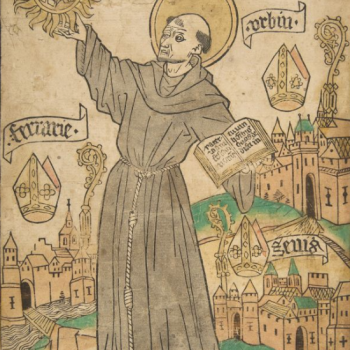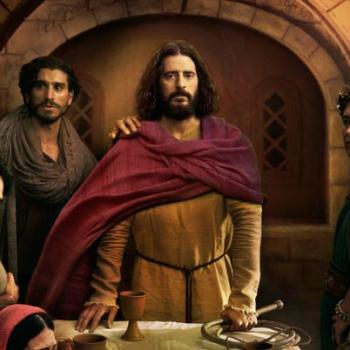to raise up the tribes of Jacob and to restore the survivors of Israel;
I will give you as a light to the nations,
that my salvation may reach to the ends of the earth (42:6).
This servant was initially summoned to reconstitute the remnant of the Israelite exiles, but Isaiah suddenly realizes that such a task is too small, too trivial. No, this servant will now be sent as a "light to the nations," in order that God's "salvation may reach to the ends of the earth." In fact, Isaiah echoes famous words from the book of Genesis 12:3 where Abram, God's chosen one, is called from his homeland to be one who "will bless all the families of the earth." In effect, Isaiah's great servant is a new Abram, fulfilling that call given so long ago. And though this servant is "deeply despised, abhorred by the nations" (42:7), finally in the sight of the wonder of his work of spreading God's salvation to the whole earth, "kings shall see and stand up, and prostrate themselves," because of YHWH, "the Holy One of Israel who has chosen you."
Little wonder that the early Christians read this marvelous passage and thought of the one they called Christ. That baby in the manger, so small, so unknown, so mysteriously hidden, for them became public in power and healing, finally despised and dying on a Roman cross. Why? To fulfill the role of the servant, they believed, to offer the light of God to the ends of the earth.
But what of Isaiah? What did he have in mind when he conjured this servant, Israel? Surely the huge role of Isaiah's servant in the 6th century B.C.E. was little different than the one those early Christians imagined. The servant was to bring Israel back to God, but was to do far more; he was to announce the salvation of God to all. At the end, that has always been the role of true servants of God, has it not?





